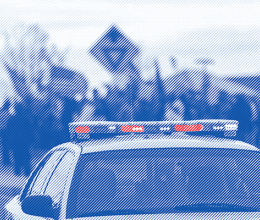ACLU Seeks Details on Government Phone Tracking in Massive Nationwide Information Request
Campaign is One of the Largest Coordinated Information Act Requests in American History
“The ability to access cell phone location data is an incredibly powerful tool and its use is shrouded in secrecy. The public has a right to know how and under what circumstances their location information is being accessed by the government,” said Catherine Crump, staff attorney for the ACLU Speech, Privacy and Technology Project. “A detailed history of someone's movements is extremely personal and is the kind of information the Constitution protects.”
Law enforcement agencies are being asked for information including:
- whether law enforcement agents demonstrate probable cause and obtain a warrant to access cell phone location data;
- statistics on how frequently law enforcement agencies obtain cell phone location data;
- how much money law enforcement agencies spend tracking cell phones and
- other policies and procedures used for acquiring location data.
Law enforcement’s use of cell phone location data has been widespread for years, although it has become increasingly controversial recently. Just last week, the general counsel of the National Security Agency suggested to members of Congress that the NSA might have the authority to collect the location information of American citizens inside theU.S.Also, this spring, researchers revealed that iPhones were collecting and storing location information in unknown files on the phone. Police inMichigansought information about every cell phone near the site of a planned labor protest.
The U.S. Supreme Court has agreed to decide whether police need a warrant to place a GPS tracking device on a person's vehicle. While that case does not involve cell phones, it could influence the rules police have to follow for cell phone tracking.
Congress is considering the Geolocation Privacy and Surveillance Act, a bill supported by the ACLU that would require police to get a warrant to obtain personal location information. The bill would protect both historical and real-time location data, and would also require customers' consent for telecommunications companies to collect location data.
Today’s requests are part of the ACLU’s Demand Your dotRights Campaign, the organization’s campaign to make sure that as technology advances, privacy rights are not left behind.
More information about the requests is available www.aclu.org/locationtracking

